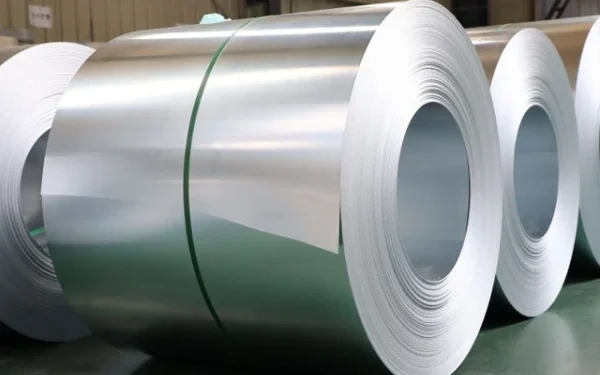Introduction: A Landmark Moment in Pakistan’s Trade Policy
In a significant development in the realm of international trade enforcement, the National Tariff Commission (NTC) of Pakistan has successfully concluded the country’s first-ever anti-circumvention case, leading to the imposition of a 40.47% anti-dumping duty on imports of galvalume steel. This decisive action represents a crucial step in protecting Pakistan’s domestic steel industry and signals the government’s increasing seriousness in applying trade remedies against unfair foreign competition.
The case, involving strategic substitution of galvanized steel with galvalume steel to evade existing duties, has set a precedent in enforcing anti-dumping regulations and closing legal loopholes that foreign exporters were using to bypass tariffs.
Understanding the Background: Anti-Dumping Measures in Pakistan
What Is Anti-Dumping Duty?
Anti-dumping duties are trade defense mechanisms used by countries to protect their domestic industries from the unfair practice of dumping, which occurs when exporters sell goods in a foreign market at prices lower than their home market or below the cost of production.
In 2017, Pakistan imposed anti-dumping duties ranging from 6.09% to 40.47% on galvanized steel coils and sheets imported from China. These duties were initially introduced to curb the influx of low-cost steel products that were hurting local manufacturers by driving prices below sustainable levels. The duties were later renewed in 2022 after continued evidence of injury to the domestic industry.
What is Galvalume Steel and How Was It Used to Evade Duties?
Galvalume steel is a variant of coated steel products, made from steel sheets coated with a combination of zinc (Zn), aluminum (Al), and silicon (Si). Although technically different in composition from galvanized steel (which uses only zinc), galvalume serves the same purpose—it is widely used in construction, roofing, appliances, and automobile production.
Exporters began substituting galvanized steel with galvalume steel, importing it into Pakistan as a duty-free product, despite its functional similarity to galvanized steel. This practice effectively circumvented the existing anti-dumping duties and undermined the protection afforded to local steel producers.
Initiation of the Anti-Circumvention Case: Petition by Local Industry
The anti-circumvention case was initiated following a formal petition by two major Pakistani steel producers—International Steels Limited (ISL) and Aisha Steel Mills Limited (ASML). These companies argued that galvalume steel was being used as a substitute to sidestep the anti-dumping duties originally meant for galvanized steel imports from China.
The petitioners provided substantial evidence, including:
- Chemical and metallurgical similarities between the two steel products.
- Comparable usage and consumer base in Pakistan.
- Sharp rise in galvalume steel imports coinciding with the imposition of anti-dumping duties on galvanized steel.
- Deterioration of local sales and market share for Pakistani steel manufacturers.
NTC’s Investigation: Confirming Circumvention and Harm
Upon receiving the complaint, the National Tariff Commission launched a comprehensive investigation into the matter. According to the findings of the NTC:
- Galvalume steel was being deliberately imported to evade anti-dumping duties.
- The physical characteristics, production processes, and end-uses of galvalume and galvanized steel were nearly identical.
- Galvalume steel was causing material injury to the domestic steel industry, similar to the previously identified impact of dumped galvanized steel.
The Commission concluded that the importers’ actions constituted circumvention under Pakistan’s anti-dumping laws, necessitating corrective measures.
Outcome: 40.47% Anti-Dumping Duty Imposed on Galvalume Steel
Following the findings, the NTC imposed a definitive anti-dumping duty of 40.47% on galvalume steel imports. This duty is equal to the highest rate previously imposed on Chinese galvanized steel products and is intended to neutralize the impact of circumvention.
Scope of the Duty
- The duty applies specifically to galvalume steel coils and sheets.
- It covers imports from countries where circumvention was established, particularly China.
- The measure will remain in place for a determined period, with the possibility of renewal based on future reviews.
Why This Case Matters: Broader Implications for Trade and Industry
1. Strengthening Trade Law Enforcement
This decision marks the first successful use of anti-circumvention provisions in Pakistan’s trade remedy framework. It sets a precedent for:
- Stricter monitoring of imports.
- Deterrence against manipulative practices by exporters.
- Enhanced regulatory credibility in the global trade community.
2. Boosting Domestic Industry Confidence
For Pakistan’s domestic steel producers, this is a major win. It demonstrates that the government is responsive to industrial grievances and is willing to enforce trade protections effectively. The decision is expected to:
- Stabilize domestic prices of steel.
- Protect employment in the steel manufacturing sector.
- Encourage investment in capacity expansion and modernization.
3. Aligning with Global Trade Standards
Anti-circumvention investigations are common in WTO member states like the United States, European Union, and India. Pakistan’s move reflects its alignment with international best practices, giving confidence to both domestic and foreign investors.
Challenges Ahead: Ensuring Effective Implementation
While the decision is commendable, it also presents challenges:
- Customs authorities will need to effectively differentiate between legitimate and circumventing imports.
- There is a risk that exporters may attempt further product modifications to continue bypassing duties.
- Litigation or international arbitration could be initiated by affected exporters, potentially delaying enforcement.
To address these, the NTC and Pakistan Customs must collaborate closely, utilize advanced product classification tools, and ensure robust training of enforcement personnel.
Conclusion: A New Chapter in Pakistan’s Trade Enforcement Regime
The completion of Pakistan’s first anti-circumvention case is a landmark in the evolution of its trade defense policy. By imposing a 40.47% anti-dumping duty on galvalume steel, the NTC has:
- Closed a major legal loophole,
- Reinforced support for domestic industry, and
- Signaled a stronger commitment to fair trade practices.
As the global trade environment grows increasingly competitive, such proactive measures are essential for developing economies like Pakistan to thrive. The steel sector, often referred to as the backbone of industrial growth, can now breathe easier knowing that its concerns are being taken seriously at the highest levels.

























